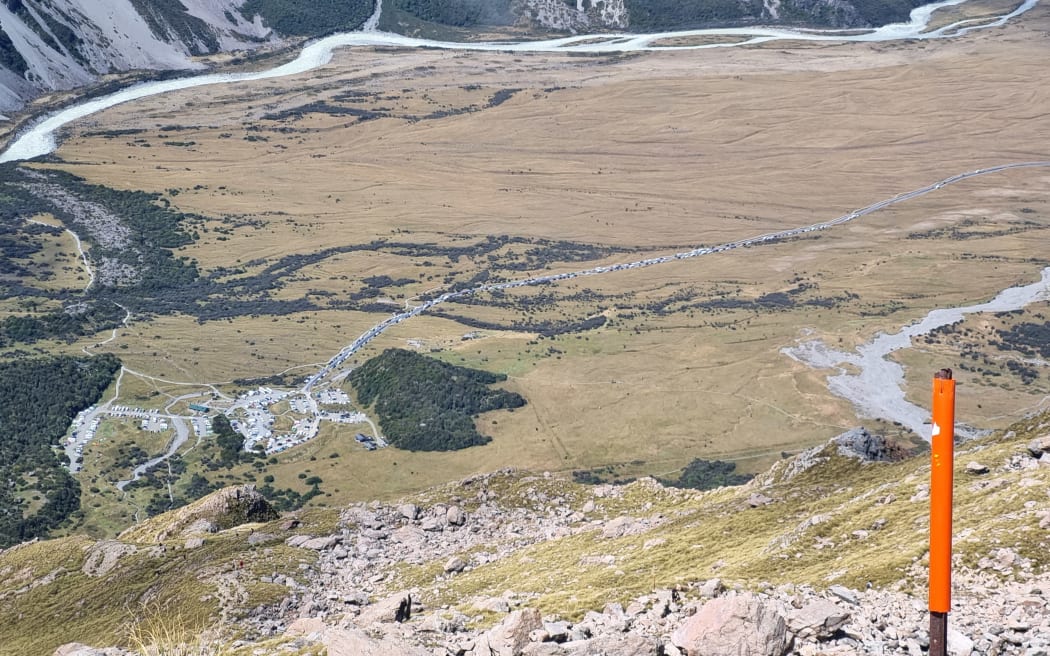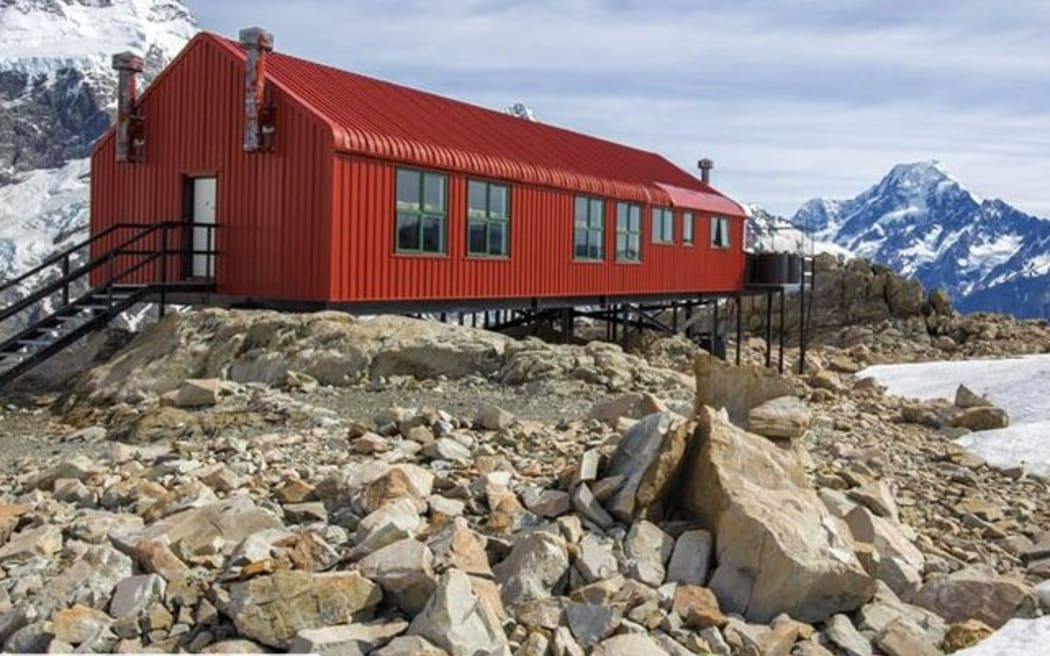
An image taken from the track to Mueller Hut shows traffic backed up en route to a carpark in Aoraki National Park. Photo: Mike Washington / Supplied
Conservation Minister Tama Potaka has not ruled out user-pays charges for day-trippers or privatisation of huts in Aotearoa's national parks and conservation estates.
Trampers and hunters currently pay to stay overnight in DOC huts, but for casual day hikers, access to these costly assets is free.
A briefing to the incoming Conservation Minister in November repeatedly sounded the alarm that DOC could not afford to maintain its assets, visitor congestion was an issue, current fees did not reflect the cost of maintaining huts and tracks - and it was time to consider more user charges as well as raising existing fees.
In response, a flood of listeners contacted Checkpoint to say user pays was the answer to funding conservation infrastructure.
Potaka said user pays was one of a range of options for funding DOC.
"Those options will be considered over the coming ... year or so, as we assess how can we best look after and show the the conservation ethic, but also the kaitiakitanga we need to look after 30 percent of New Zealand's land.
"Looking after the conservation assets is something that is very expensive for us as a country. So we have to carefully assess how are we going to fund that into the future."
Asked whether this might have an impact on DOC funding, Potaka replied: "I think first and foremost, our environment is in a fragile state as well as our economy, and the environment that we own as a country is predominantly within the conservation estate.
"So we have to be clear about what our role is as the government to look after [it] and the many pressing needs that go with that.
"There are different ways we can prioritise and generate revenue and, obviously, user pays is one of those ways. But that's something that I'll take further advice on going forward."

The toilets at Mueller Hut have been closed to day trippers. Photo: Francisco Siller / Creative Commons
Potaka said he was taking advice on whether to increase the international visitor conservation and tourism levy from its current rate of $35. This was not applicable for visitors from Australia or the Pacific Islands, however.
Asked about the warnings in the briefing paper, he said there were "dire and fragile circumstances confronting" the areas he was responsible for, and "the whenua and also the moana that are part of the conservation remit".
"What I'm really appreciative of is that there's some significant and increasing awareness of the precious nature of the estate and what we need to do in order to look after it so those are ... things that we'll continue to consider and with urgency."
However, the government books needed "recalibration", he said.
When asked, he did not rule out outsourcing the maintenance and administration of DOC huts.
"I haven't formally considered that, but I'm sure that'll be one of the options that's available in order to right size costs and income."

